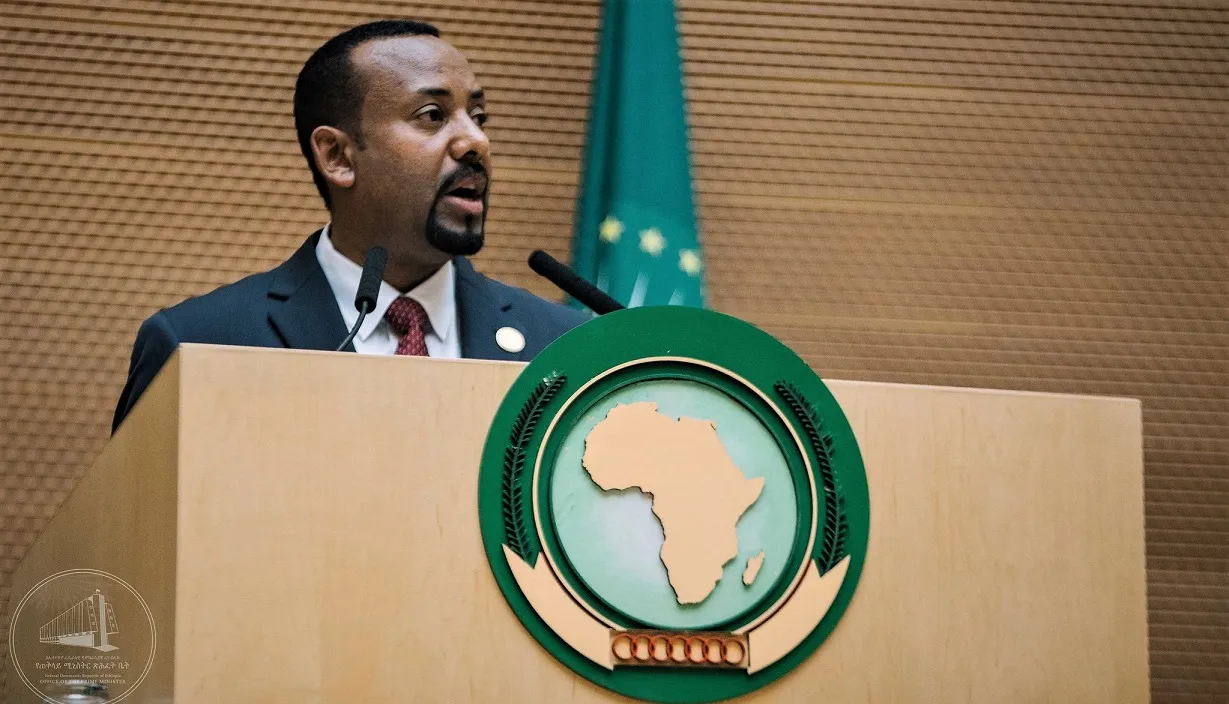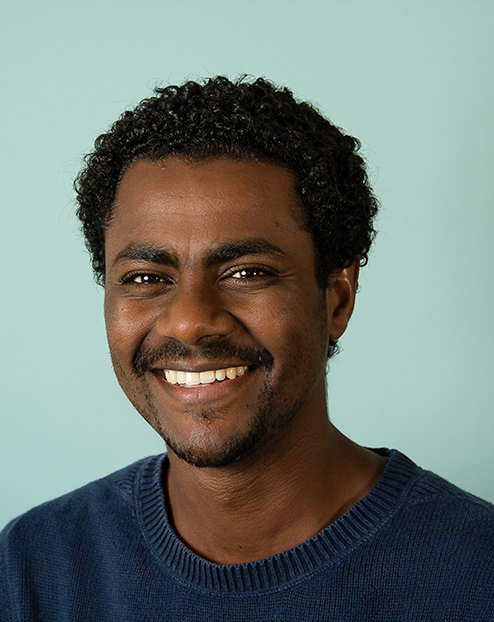
Ethiopia is set to hold general elections on 21 June 2021 amid a devastating war in Tigray region and continuing security challenges across the country. But this was not how things were supposed to pan out.
Disclaimer: Views expressed in this commentary are those of the author. This commentary is independent of specific national or political interests. Views expressed do not necessarily represent the institutional position of International IDEA, its Board of Advisers or its Council of Member States.
After the protest-induced reshuffle within the then ruling coalition—the Ethiopian Peoples’ Revolutionary Democratic Front (EPRDF)—Abiy Ahmed became prime minister in April 2018. Abiy’s unifying message found an echo across linguistic and political divides and confidence building measures generated unprecedented euphoria towards a transition to peace and democracy. Back then, many hoped this period would be topped off by credible elections in August 2020, postponed to June 2021 due to the Covid-19 pandemic.
In hindsight, the euphoria appears unrealistic. Transitions from authoritarianism are moments of weakness, vulnerable to potential breakdown of order and even civil war, particularly in countries divided along identities. The pendulum swung back to an enduring political culture of mistrust, labelling, absolute dominance, and elimination. And mistrust is a self-fulfilling prophesy.
A series of contested government steps and pervasive attacks against minority groups unravelled Ethiopia’s fragile socio-political foundations. The transformation of the EPRDF coalition into a unified Prosperity Party (PP) proved a zero-sum undertaking that sharply divided the Oromo ruling elite, and saw the departure of the then hegemonic Tigray People’s Liberation Front (TPLF) and architecture of the EPRDF. The Covid-19 pandemic in early 2020 proved the last nail in the coffin of the nascent transition.
The pandemic led to a controversial postponement of the elections in a context of heightened distrust and political tension, catapulting what should have been a difficult but still technical and constitutional dispute into a purely political battle. This contestation over the postponement exacerbated the central government’s tension with the TPLF, which rejected the postponement and vowed to organise its own elections in the Tigray regional state.
There was a real sense that elections were necessary, if insufficient, preconditions for a democratic dispensation.
Moreover, the overall situation fuelled intra-ethnic contestation in Oromia region, Ethiopia’s largest and Abiy’s home region. The killing of prominent Oromo singer Hachalu Hundessa in June 2020 unleashed violence on linguistic minorities in Oromia, leading to hundreds of deaths. The government arrested leading Oromo politicians, including Jawar Mohammed and Bekele Gerba from the Oromo Federalist Congress (OFC), on allegations of orchestrating the killing, instigating violence or terrorism. Prominent politicians struggling for an autonomous Addis Ababa, notably Eskinder Nega with his ‘Balderas’ Party, were also arrested on allegations of organising violent groups to counter violence from Oromos in the capital’s surroundings.
The preparations for holding the elections resumed in September 2020, but the lines had already been drawn. The TPLF had organised elections in Tigray in August 2020 in defiance of a federal ban. The federal government countered this step by re-directing subsidies to the Tigray regional government towards local governments. The brinkmanship spiralled out of control. In early November 2020, a civil war broke out after TPLF forces attacked the Northern Command, the largest military base in the country, in what they considered a pre-emptive measure against perceived inevitable federal military offensive. In December 2020, the National Electoral Board of Ethiopia (NEBE) announced that elections will be held in June 2021, except in Tigray. Meanwhile, outside of Tigray, attacks against ethnic minorities have already displaced millions across the country, and the security situation remains volatile.
Encumbered elections
Many saw elections as harbingers of the success of the much-touted transition. There was a real sense that elections were necessary, if insufficient, preconditions for a democratic dispensation. Nevertheless, the war in Tigray, crisis in Oromia, and insecurity and displacement elsewhere shattered hopes of key opposition forces in the credibility of the elections. In Oromia, where the ruling party would have faced the toughest electoral challenge, key opposition parties—the OFC and Oromo Liberation Front (OLF)— accused it of unbearably repressive tactics, and decided to boycott the elections.
With hopes for credible elections subsiding and unabating war in Tigray, calls for inclusive dialogue—which began to be voiced with Abiy’s rise—grew louder as they were perceived as the only guarantee for a level electoral playing field. Abiy’s ruling PP, however, considered any calls for ‘inclusive dialogue’ as dog whistle for setting up a transitional caretaker government. While it now appears to have accepted the need for dialogue, it insists that it should occur after the elections.
With currently almost 15 per cent of constituencies unable to participate in 21 June elections due to insecurity and other challenges, and without key opposition parties in Oromia region—which represents almost a third of all electoral constituencies—the elections will be a mere shadow of transition hopes. Hence, there is a danger that the contestation over the forthcoming polls could further exacerbate the already damaged levels of trust between the ruling and key opposition parties, and increase chances of extra-legal political contestations.
There is no magic wand to solve Ethiopia’s recurrent ills and gains. |
(Re-)building confidence
There is little doubt that the ruling party will secure victory at the federal level, and will also very likely win in all regions, with the exception of Addis Ababa. PP will beyond doubt claim a renewed popular mandate—decisively delinked from the notorious 2015 elections where the EPRDF won a 100 per cent of the seats that currently provide the formal basis of its power.
But to bring the derailed political train back on track would require a return to the political language and attitude of Abiy’s early months that recognised the genuine legitimacy and constituency of rival political groups and sought common ground beyond short-term point-scoring and grand-standing.
As a starter, to rebuild confidence, the government could engage with detained political leaders, including as necessary through amnesties. It will also be critical to find political solutions to the Tigray tragedy through engagement with an inclusive body representing Tigrayans of all political colours, including TPLF heirs, alongside accountability measures to atrocities and resolution of boundary disputes between Tigray and Amhara regions.
The PP could also adopt new laws recognising opposition parties as crucial for democratic dispensation and establish mechanisms to provide acceptable resources (such as paid salary), offices, support staff and privileges to an ‘opposition leader’ (to be selected by opposition groups, and with adaptations in Oromia to consider the electoral boycott, perhaps in the form of a consultative opposition body) both at the federal and regional levels. Opposition groups could also be granted right to be formally consulted and heard in making key appointments, including depending on competencies to diplomatic positions. To enhance accountability, opposition parties could be granted continuous access to public media beyond electoral periods.
These confidence-building measures could then be followed and accompanied by a genuine and credible dialogue and reconciliation process, involving not only political and social elites but also the broader public. This would require to first initiate a process steered by an independent structure through which the agenda would be set, and then deliberate and redefine the normative foundations and institutional features of the Ethiopian state through a constitutional reform process.
Such a process would need to build an autonomous bureaucracy (through genuine party-state separation), an independent justice sector (including the judiciary and prosecution services), and other strong democracy-supporting institutions. These ‘pre-democracy’ deliberations could lead to further dialogue to agree on the preconditions for free, fair, and credible elections—which could potentially be held earlier than the regular five-year period to realise a meaningful transition to democratisation.
There is no magic wand to solve Ethiopia’s recurrent ills and gains. The historical challenges, as well as the achievements, reflect inter-generational socio-political cleavages. Today’s generation should muster the courage to lay the foundation for a new culture that thrives on sympathy and mutual recognition, rather than on labelling, exclusion, and elimination.




